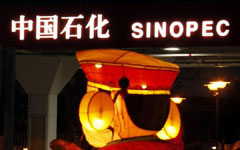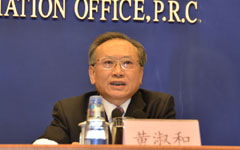State-owned enterprises are losing competitiveness and the support from investors, but the way forward is still far from clear, reports Shi Jing in Shanghai
Even as the central government called for further reform of China's massive State-owned enterprises, a policy that could undermine their dominant market positions, investors were pulling funds from their shares.
A survey by Bloomberg News in late February found that oil producer PetroChina Co Ltd ranked only 14 on a list of the top 20 emerging-market stocks in terms of market capitalization, down from fourth place a year earlier. It was the only Chinese company to make the top 20.
|
 |
|
 |
"China Mobile, of course, realized how tough the competition is and modified its market strategy," said Tang Yaqian, deputy strategy director of Interbrand China.
In many industries, nimble private companies are forcing SOEs to change. Examples can be found in recent moves: Shanghai-based Dazhong Insurance Co Ltd obtained approval from the China Insurance Regulatory Commission for a change in its equity ownership. China Petroleum and Chemical Corp, known as Sinopec, announced on Feb 19 that it will open its highly profitable oil retail business to private capital participation.
Zhuhai Gree Group Corp, wholly owned by the Zhuhai State-owned Assets Supervision and Administration Commission in Guangdong province, announced a day later it would transfer its asset stake in Gree Real Estate Co Ltd to a newly established company, and sell an equity stake of less than 49 percent via public tender to introduce strategic investors.
"In our view, the current wave of SOE reform started with quality companies and quality assets. We think this is the right approach and expect it to be expanded. We think local governments, facing rising financing costs, increased regulation of the shadow banking business, pressures to roll over debt and the need to cut overcapacity, will be active in seeking opportunities to restructure local State-owned enterprises," said Jian Chang, chief China economist at Barclays Plc.
However, this is far from enough. According to its Ministry of Finance, China has more than 100,000 SOEs at all levels, with combined assets of about $13 trillion. Reforming that many enterprises in a manner that satisfies everyone "will be difficult and will take some time, notably because that part of the Chinese economy increased quite significantly during the financial crisis," according to Pascal Lamy, former director-general of the World Trade Organization.
